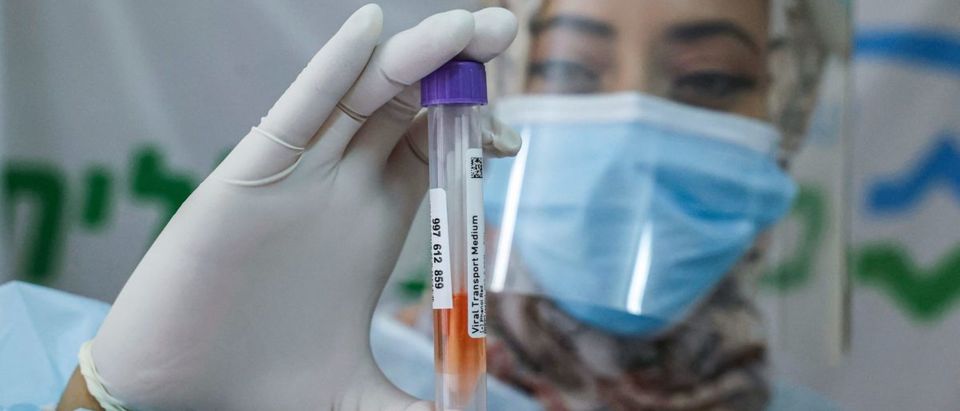A New York Times investigation found that the industry of prenatal medical testing is fraught with false positives and misleading advertising.
Prenatal screening for genetic disorders can have false positivity rates upwards of 90%, according to the NYT investigation. Many women aren’t informed on the inaccuracy of the tests, though, and some leading companies in the industry are attempting to conceal how often their products can miss the mark.
Prenatal tests promise to detect rare genetic diseases in babies by scanning DNA.
Labs market them as “reliable.” They tell women to have “total confidence” in results.
It turns out, the grave predictions made by those tests are usually wrong. (1/5)https://t.co/IsskNpYTWg
— Sarah Kliff (@sarahkliff) January 1, 2022
Leaders in the medical diagnostics field began developing tests for “microdeletions” — small missing pieces of chromosomes that can lead to quality of life issues or death after birth — when testing for Down syndrome became accurate and widely available. While the noninvasive prenatal testing (NIPT) for Down syndrome is generally accurate, companies that have tried to apply the same methods to other microdeletions have been largely unsuccessful.
The NYT examined tests for the seven microdeletions offered by testing companies like Natera, Labcorp and Quest Diagnostics. It found that five of the tests — for DiGeorge syndrome, 1p36 deletion, Cri-du-chat syndrome, Wolf-Hirschhorn syndrome and Prader-Willi and Angelmen syndromes — had false positivity rates ranging from 80% to 93%. The other two tests, for Langer-Giedion syndrome and Jacobsen syndrome, are for conditions so rare that there isn’t enough data available to evaluate the accuracy of the tests.
More than one-third of pregnant women in America get some form of NIPT, according to the NYT. They are presented with marketing material offering “peace of mind” and “total confidence,” but most of that material reviewed by the NYT does not contain data on false positivity rates or clarifications that the tests are just indicators of risk and not final diagnoses with certainty.
Additionally, the most expansive microdeletion tests only test for five to seven conditions, when hundreds more exist. So even a negative panel from a 100% accurate test wouldn’t guarantee that a child will be born healthy.
The incidence rates of these syndromes is also incredibly low, leading some to question whether conducting tests is worthwhile at all. “It’s a little like running mammograms on kids,” obstetrician and geneticist Mary Norton told the NYT. “The chance of breast cancer is so low, so why are you doing it? I think it’s purely a marketing thing.”
The tests are also unregulated by the Food and Drug Administration (FDA). That allows companies to print whatever they want on their marketing brochures and pamphlets, many of which are “misleading,” former FDA official Alberto Gutierrez told the NYT.
Expectant mothers who get a positive test are advised to get follow-up screening that is more invasive and can occur later in the pregnancy. But many don’t, and six percent of women get an abortion after a positive NIPT without getting follow-up testing done, according to one study.
Geneticists who spoke to the NYT described women getting abortions without the follow-up tests being done. One said that a later test revealed to one patient that her fetus was healthy, but she had already ended the pregnancy. Some women who received false positives told the NYT that they had begun tentatively planning abortions after getting the news, only to learn it was false. (RELATED: Here’s What Would Actually Happen If Roe Is Overturned)
The costs of a microdeletion panel can range from hundreds to thousands of dollars. The total market for the tests is estimated to be at least $600 million, and may extend into the billions, according to some analysts.
Natera’s stock market value is $8.8 billion. The company projected 2021 revenues to exceed $615 million, and it could increase that by up to $300 million per year if more insurers begin covering microdeletion tests. A clinical trial found that the company’s DiGeorge syndrome test generates three times as many false positives as actual cases.
The women getting those tests done often aren’t aware of the possibility of a false positive. Geneticists told the NYT that doctors often don’t understand the inaccuracies of the tests, or if they do, don’t properly convey that information to patients. And of 17 patient and doctor brochures for the tests reviewed by the NYT, only one mentioned a false positivity rate.


